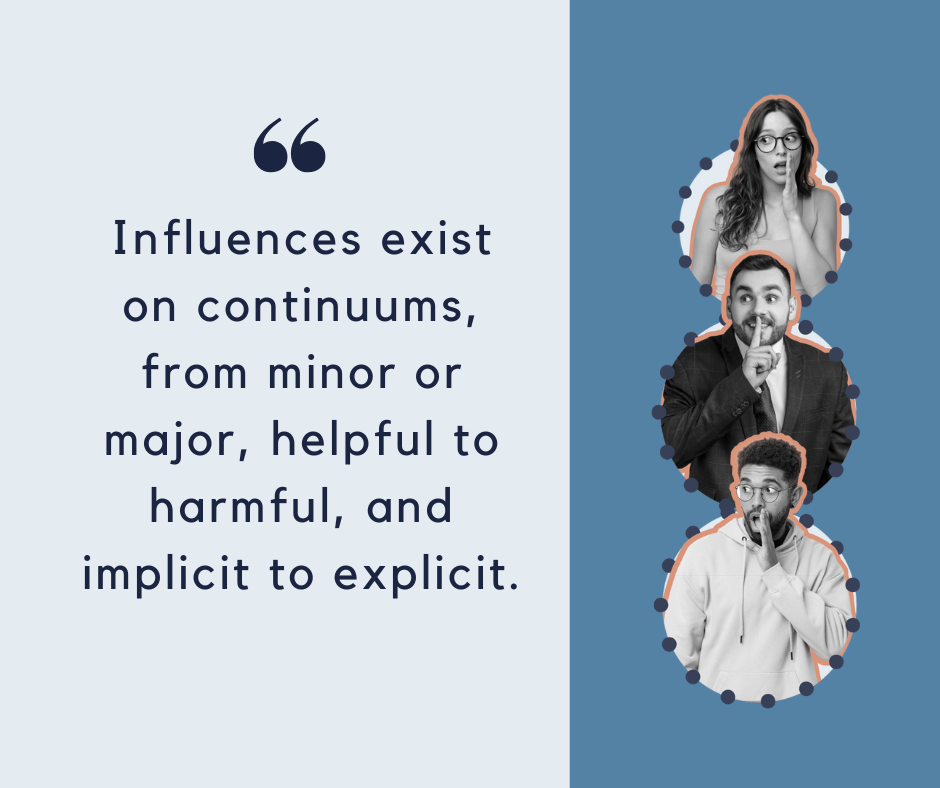By Catherine Conner and Katherine Miller
The influencing factors in a conflict are never limited to the parties in the room. None of us live in a vacuum and outside influencers such as family, friends, other professionals, and the internet, can impact how parties work through the conflict resolution process. Influences exist on continuums, from minor or major, helpful to harmful, and implicit to explicit. When working with parties, we find that acknowledging and understanding outside influences is an important part of the resolution process.
Sometimes a party feels that they have a deficit in knowledge and they may turn to an influencer they feel is more knowledgeable in an area relevant to the conflict, such as finances. Sometimes a party, researching for themselves, turns to “Professor Internet” for help which can provide conflicting or wrong information, so we may need to find ways of addressing this misinformation without shaming the parties. Not all influences are consciously known to the party, and that add another layer of complexity for conflict professionals trying to identify influencing factors that are shaping the conflict resolution process.
One of the problems conflict professionals face is not knowing the framework the outside influencers are using to advise the party. Influencers often rely on different sets of information, and nobody, including the party, may realize that the information they are using is faulty or lacks context. Sometimes we find that parties misunderstand a conversation with their lawyer and they bring that misunderstanding into the conflict conversation. Influencers also have varying motivations—perhaps they are trying to help the party, maybe they have a vendetta against the other party, or both.
There is not one approach to address all the external factors that are helping or hindering the conflict resolution process. Sometimes we find that bringing outside influencers into the room can be helpful to get everybody on the same page. Having those people in the room also gives the conflict professional a better understanding of the more powerful influencers, their motivations, and the role they may play. One caveat though, before bringing anybody into the room, it is important to think about the power balance in the room and how the presence of influencers may shift that balance.
A party may not be willing to talk about an influencer—perhaps it is a new romantic partner giving advice to a party going through a divorce and mentioning the new partner could exacerbate the situation. In this situation and others where an influencer will not come into the room, other approaches may be needed.
In our webinar on July 11, we will discuss ways to identify influencers outside the room, how we can address their impact, and focus on the people who matter without making anyone wrong.

